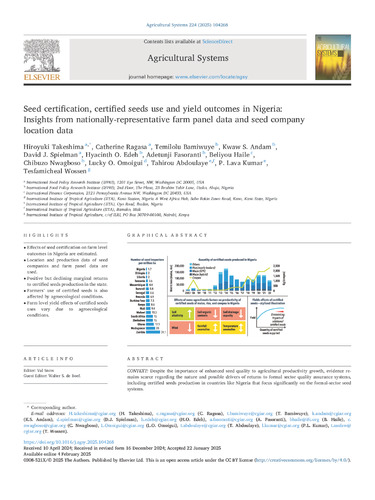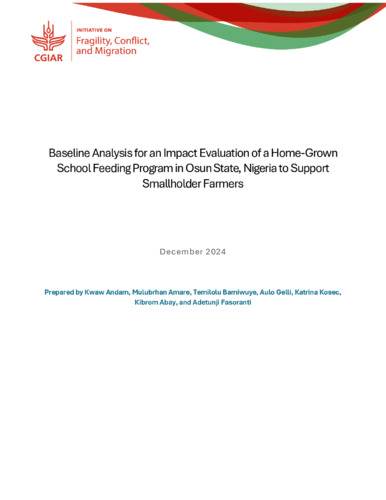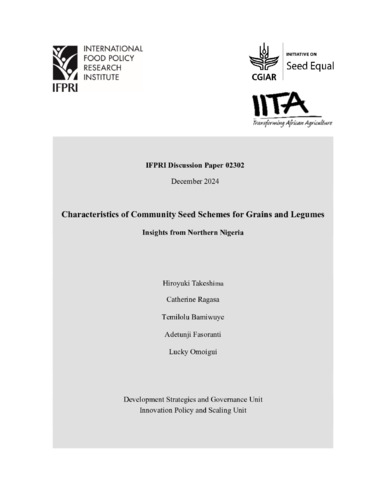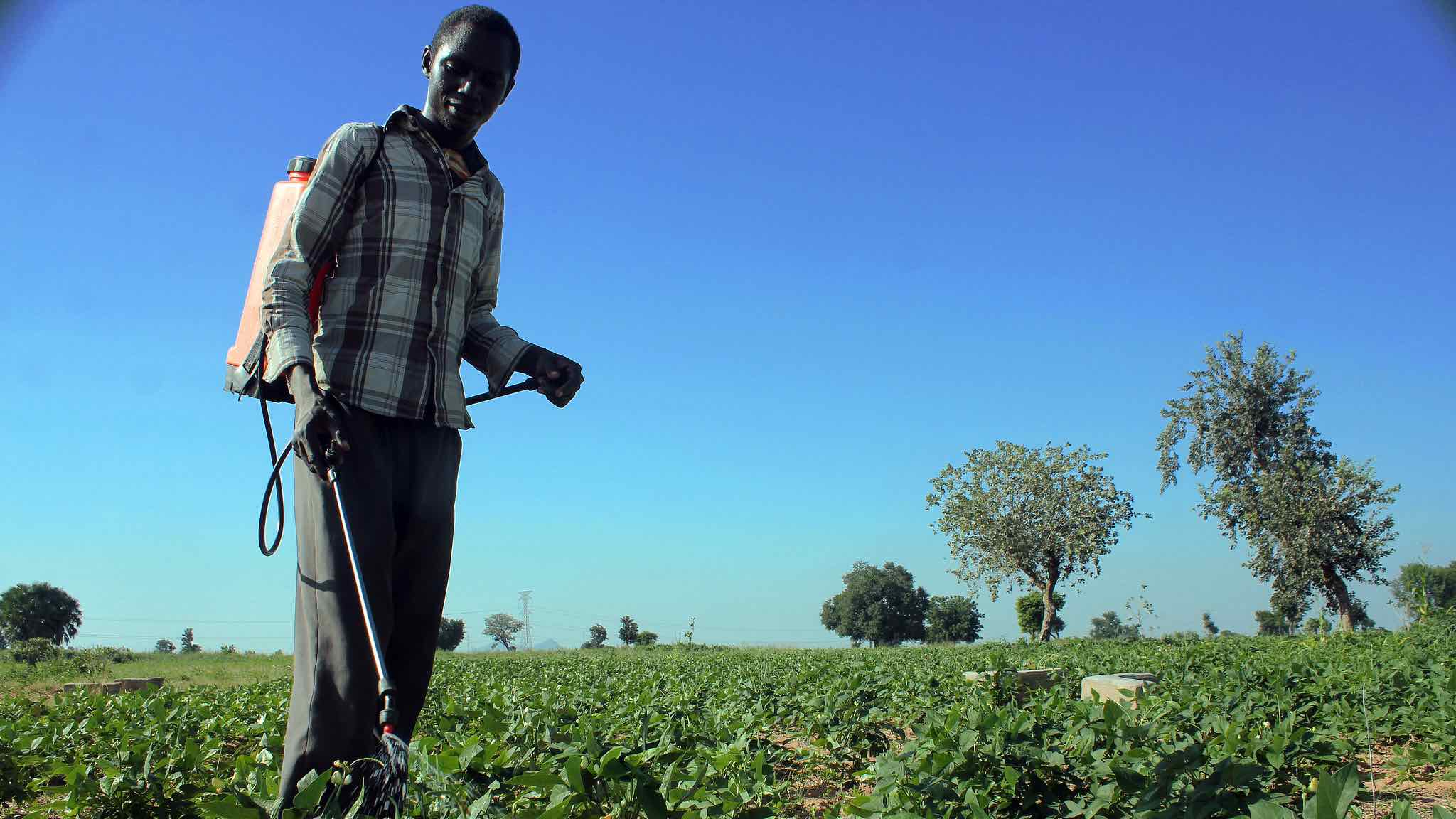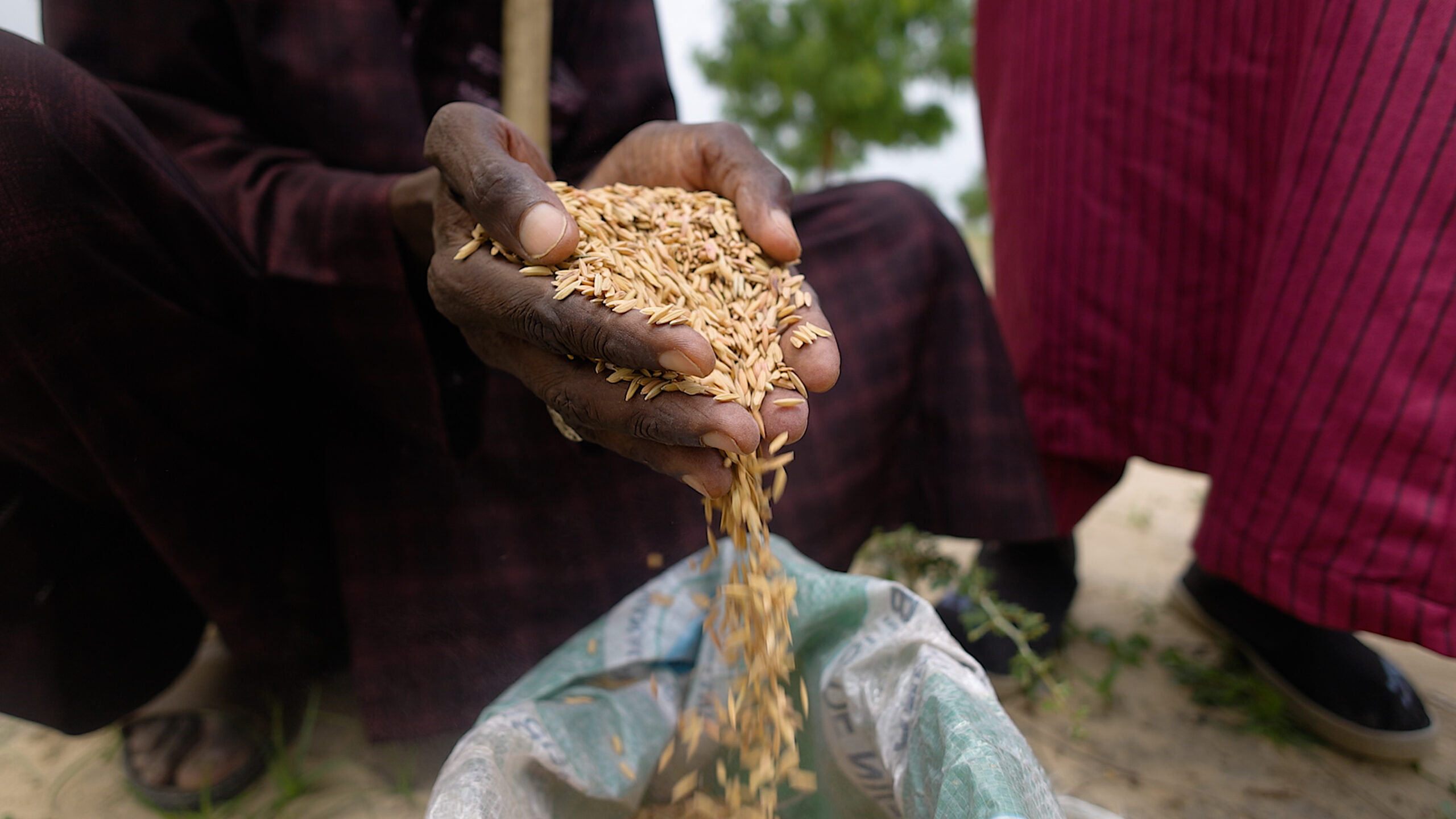Baseline analysis for an impact evaluation of a home-grown school feeding program in Osun State, Nigeria to support smallholder farmers
Home-Grown School Feeding Programs (HGSFPs) are becoming important policy instruments to improve food security, nutrition, education, agricultural production, and local economic growth (Adeyanju et al., 2024; Abay et al., 2021; Sitali, 2021; Takeshima et al., 2018; Fernandes et al., 2016; Karisa and Ordho, 2014; WFP, 2013). While the potential of HGFSPs to tackle undernutrition and micronutrient deficiencies is well documented (Alderman, Bundy, Gelli, 2024), their role in supporting local value chains and smallholder farmers remains an area of active inquiry. Following international trends and lessons, Nigeria started delivering HGSFP which includes utilizing locally sourced foods instead of imports (Dennis et al., 2021). These programs provide school meals using locally sourced food from smallholder farmers within the same community (Sumberg & Sabates-Wheeler, 2011). In 2004, Nigeria’s National HGSFP was piloted in 12 states, covering all six geopolitical zones. However, the national government abruptly halted the program, with Osun relaunching the program in 2012 using state-level funds. Osun State is currently the only Nigerian state that implements the program—and considered one of the more successful states for implementing it. Despite stoppages of the program, lessons learned from the pilot phase offered valuable operational and policy insights for implementing the National HGSFP in 2016, with the aim of using farm produce locally grown by smallholder farmers to provide children with nutritious mid-day meals on every school day (Adeyanju et al., 2024).
Authors
Andam, Kwaw S.; Amare, Mulubrhan; Bamiwuye, Temilolu; Gelli, Aulo; Kosec, Katrina; Abay, Kibrom A.; Fasoranti, Adetunji
Citation
Andam, Kwaw; Amare, Mulubrhan; Bamiwuye, Temilolu; Gelli, Aulo; Kosec, Katrina; Abay, Kibrom; and Fasoranti, Adetunji. 2024. Baseline analysis for an impact evaluation of a home-grown school feeding program in Osun State, Nigeria to support smallholder farmers. Washington, DC: International Food Policy Research Institute. https://hdl.handle.net/10568/170261
Keywords
Africa; Western Africa; Sub-saharan Africa; School Feeding; Smallholders; Food Security; Nutrition; Agricultural Production; Value Chains; Children
Project
Fragility, Conflict, and Migration
